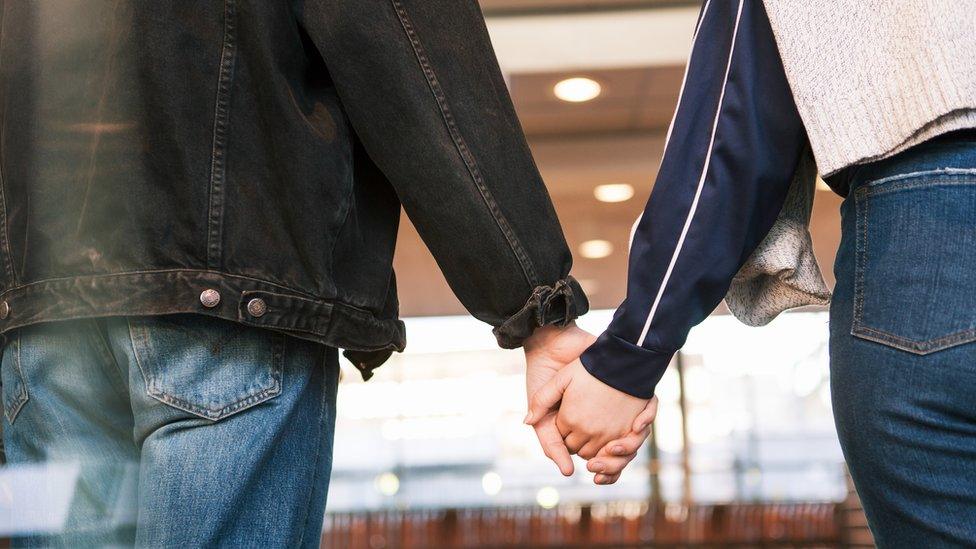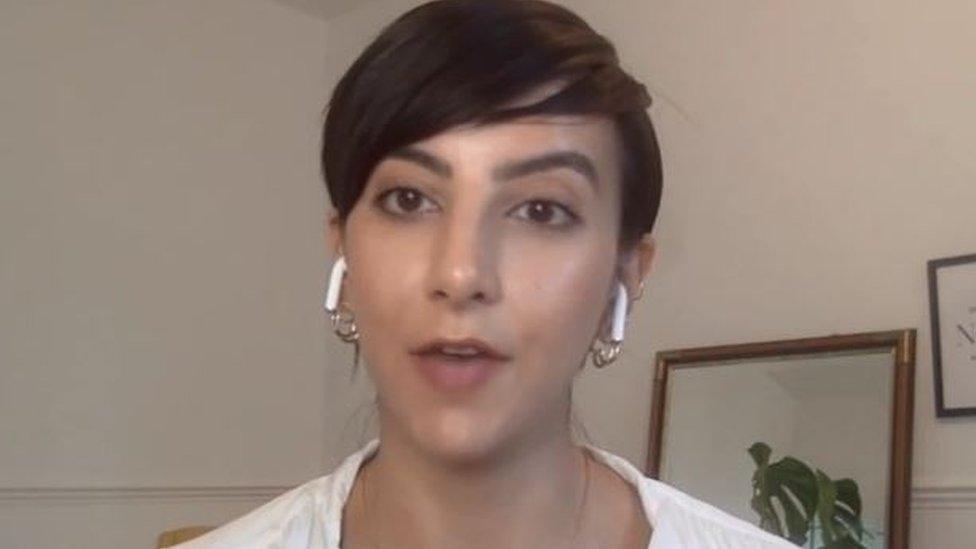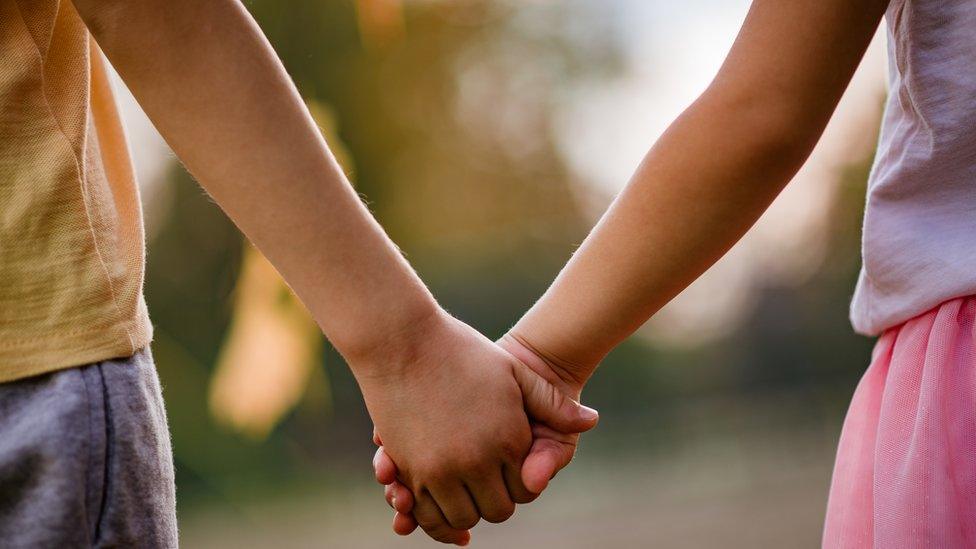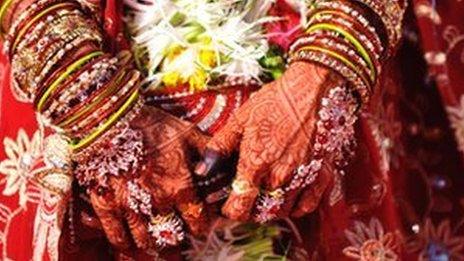Under-18 marriages 'thriving' in UK and should be banned, say charities
- Published

Campaigners have written to Prime Minister Boris Johnson warning of the "invisible but thriving issue" of marriage by parental consent in the UK.
Charities including Barnardo's claim it contributes to sexual violence and domestic abuse, and want to ban under-18s marrying in England and Wales.
Currently, 16 and 17-year-olds can marry if they have parental consent. In Scotland the legal age to marry is 16.
The government said all couples must enter into marriage freely by law.
A spokesperson added the government was "listening carefully to the debate on the legal age of marriage".
"Attempting to coerce someone into a relationship can be prosecuted under existing laws, while we made forced marriage a specific offence in 2014."
However, campaigners say parental consent often amounts to coercion, and teenage girls are regularly married off to older men who they have never met.
Latest figures from the ONS, external show 43 teenage boys and 140 teenage girls were married with parental consent in 2017, though it is thought the recorded data does not reflect the number marrying in non-legal religious and customary ceremonies.
Forced marriage: 'Dad said he would kill me if he found me'
The campaigners' letter claims marriage for those aged under 18 is one of the most hidden forms of violence against women and girls taking place in the UK.
It says current forced marriage law is not enough to protect minors.
"Unacceptably, the onus is on the child to secure their own protection under forced marriage law by speaking out against their own family and community, which can have dangerous consequences and understandably many children are too terrified to do," the letter reads.
It also says the current law undermines the legal requirement for young people to remain in education or training until they are 18, and that childhood "should be safeguarded as a time for learning and personal development."

'What child wants the responsibility of marriage?'

Payzee Mahmod, who was married at 16, said marriage was not something a child could decide about
Payzee Mahmod, whose sister Banaz was killed in a so-called honour killing after leaving a forced marriage, spoke to the BBC last October.
She said her sister would still be alive if she had not been made to marry at 17.
"At 16, what child wants to be married and take on the responsibility that comes with marriage?" she said. "No child."
Ms Mahmod, who was also married at 16 to someone she did not know, was also quoted in the charities' letter because of her case.
"As a survivor, I know first-hand what this change in law will mean to our next generation who should not be locked in child marriages with all the harms it causes and instead be free to pursue their education and aspirations," she said.
Her talk at a TEDx event in London, external has been viewed more than 900,000 times online.

The letter - sent from a partnership called Girls Not Brides and signed by several charity bosses - also claims the government's efforts to end the practice of child marriage abroad has been undermined by its own domestic legislation.
"The perception of the UK government's tolerance to child marriage has led to Bangladesh lowering its minimum marriage age using the UK as a precedent in doing so," it says.
"Bangladeshi officials have cited England and Wales as hypocritical for trying to engender progressive change abroad whilst turning a blind eye to child marriage at home. It is vital that the government challenges this perception by strengthening its action to end child marriage across the UK."

THE ULTIMATE CULT HEROES: Who are the players the streets will never forget?
COULD YOU RUN FOR 75 HOURS?: The toughest, weirdest race you've never heard of

Related topics
- Published7 October 2020

- Published30 March 2012
